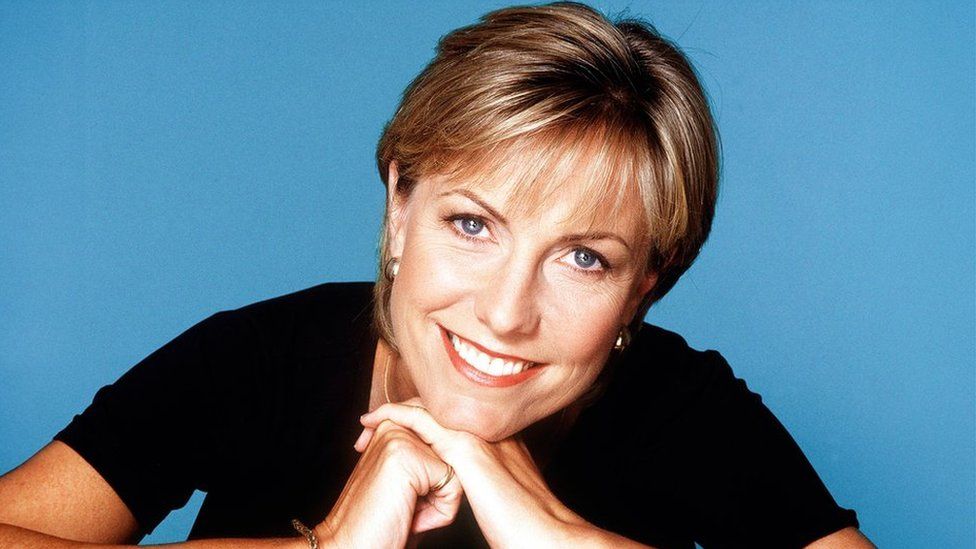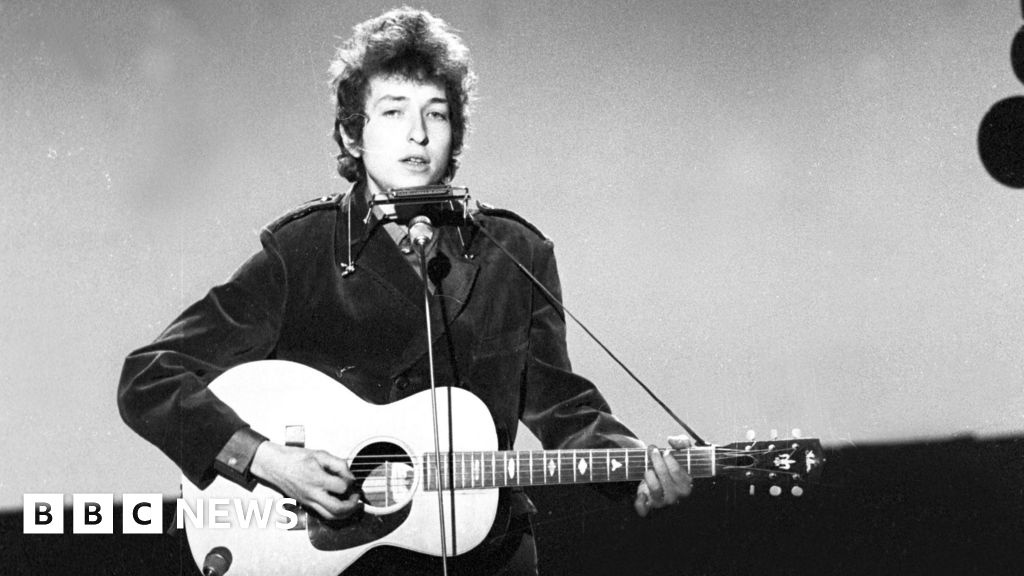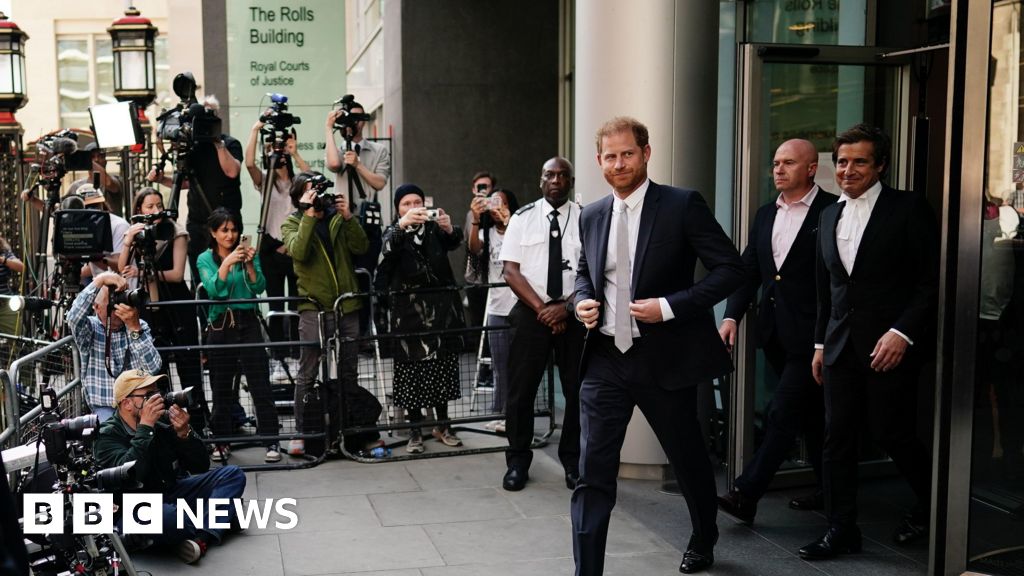ARTICLE AD BOX
 Image source, Netflix
Image source, Netflix
Jill Dando described the BBC's Crimewatch programme as "public service broadcasting at its best"
By Paul Glynn
Entertainment reporter
In April 1999, the BBC presenter and journalist Jill Dando was shot dead on her doorstep with a single bullet in broad daylight.
Twenty-four years on, despite one of the biggest, most high-profile murder investigations in British history, the case remains unsolved.
Now, a detailed new three-part Netflix documentary will attempt to answer the question, Who Killed Jill Dando?
The exhaustive docuseries, which builds on the shorter 2019 BBC feature, depicts the late Crimewatch and Holiday presenter as "the golden girl of British television" and "like a TV [Princess] Diana"; with thousands of mourners lining the streets of her hometown Weston-super-Mare for her funeral.
It offers detailed first-hand accounts from her family, friends and journalists - including BBC colleague Jennie Bond, who was "cold with shock" before breaking the news of her death to viewers - as well as police chiefs and lawyers who covered the case.
'Fanciful theories'
It also explores the many "fanciful" theories, as Dando's brother Nigel puts it, that were dissected by London's Metropolitan Police as to why his sister - "the nation's sweetheart" - was killed that day in Fulham at the age of 37.
These theories range from her death being the work of a crazed celebrity stalker or a jilted lover, to it being an assassination carried out by a professional hitman from the mafia or criminal underworld, due to her very public work helping to catch culprits.
Others claimed she had been executed in a revenge hit for the UK-backed Nato bombing of Serbia's state broadcaster.
Nigel Dando has his own theory.
CCTV images showed his sister had not been followed home by anyone that day, he notes, and she was, by then, spending very little time at her own place having moved in with her fiancé Alan Farthing. So how could anyone have known she going to arrive there at that time?
Mr Dando tells BBC News: "My theory, which I had before this documentary and more so since I've seen a greater insight into the police investigation, is that it was just someone who was in that street who may or may not have known that she lived there, who was armed at the time, who may have recognised her, who perhaps thought he or she could get five minutes of notoriety by shooting her."
He continues: "And that is my view as to what happened, no matter how odd and strange people may think that is, it's certainly one of the theories that's abounded; that Jill was just in the wrong place at the wrong time."
Dando and Nick Ross on the set of Crimewatch in 1998
As a Bristol Evening Post journalist himself at the time of the murder, which he says was a "massive shock" to him and his family, Mr Dando says he had no complaints about the widespread media coverage.
"You've got a local girl who's made good, on the celebrity circuit, a massive star with the BBC and she was shot dead for no apparent reason on her doorstep in broad daylight," he says. "If you take my feelings [of grief] out of it, what a massive story that is."
The mysterious death of his "very loving" and "generous" sister, who was 37 when she was killed, struck a chord with the British public.
From speaking to people down the years, he says "there's a feeling out there" that they "wouldn't allow Jill to be forgotten".
Executive producer Emma Cooper, who previously worked on another Netflix series about The Disappearance of Madeleine McCann, says it was "important" to the filmmaking team "that the memory and legacy of Jill was really front and centre" of the docuseries.
She describes it as the "perfect mystery from start to finish".
Much-loved household names being shot dead in suburbia in cold blood "just doesn't happen" in England, she tells us. "And it hasn't happened since."
Image source, PA
Image caption,Dando was shot in the head at point blank range outside her home in Fulham, West London
Most murder victims, statistically-speaking, are killed by someone they know.
And so, as detailed in the docuseries, Dando's partner, Mr Farthing, was interviewed by the police, along with her ex-partner and BBC Breakfast news editor Bob Wheaton. Also interviewed was her agent Jon Roseman, who inconveniently had written a crime novel detailing a spookily similar scene.
They were all ruled out as suspects, as the docuseries shows, along with a man who matched the police E-fit appearance of someone witnesses said they'd seen sweating at a nearby bus stop around the time of her death. The police admit in the programme that the release of the E-fit image was "a big mistake" in the investigation.
When no precise motive could be found and no real evidence or murder weapon materialised, the authorities had to go back to square one. The only non-circumstantial evidence they had was a single particle of firearm discharge residue that matched the ammunition used in the killing.
This YouTube post cannot be displayed in your browser. Please enable Javascript or try a different browser.View original content on YouTube
The BBC is not responsible for the content of external sites. YouTube content may contain adverts.
Allow YouTube content?
This article contains content provided by Google YouTube. We ask for your permission before anything is loaded, as they may be using cookies and other technologies. You may want to read Google’s cookie policy, external and privacy policy, external before accepting. To view this content choose ‘accept and continue’.
The BBC is not responsible for the content of external sites. YouTube content may contain adverts.
After a year's worth of mounting pressure on the police due to an intense media appetite to find the assailant who had shockingly killed one of their own (including an appeal for information on Crimewatch itself), the particle was used to charge Barry George - an apparently gun-obsessed, lone wolf "fantasist" - with Dando's murder.
The story of Mr George's arrest was almost as big as that of Dando's death. And overnight he became the most famous, or infamous man in the country, as we are shown.
Details from his past were made public, including an attempted rape conviction, an ill-fated attempt a being a stuntman, and a range of pseudonyms he used linking himself to famous singers. Using the moniker Barry Bulsara he had told people he was Freddy Mercury's cousin, something the late Queen singer's estate formally denied.
Image source, PA
Image caption,Barry George served eight years in prison for murder, which he always denied - he was later acquitted
In court, he was found guilty and went on to serve eight years for the crime, one which he always denied having committed. But in August 2008, with the support of his sister, Mr George was acquitted following a re-trial which discounted the evidence, deeming his conviction unsafe. He later lost his bid for compensation, however, for wrongful imprisonment.
In the docuseries we see what his life is like today and hear him declare how he was made a "scapegoat" and "persecuted".
The concluding episode hones in on the battle between Mr George's lawyer, Michael Mansfield QC, who fiercely argues that the prosecution doesn't add up and that his client "wasn't capable of murder, and police chief Hamish Campbell, who believes, to this day, that he did it. "I don't think it's a mystery at all," he says.
'Jog somebody's memory'
Whoever killed Jill Dando has quite literally got away with murder.
While her brother thinks it is "highly unlikely the police will catch anyone" for it now, and doesn't expect the case will ever be reopened, he does remain "hopeful" that one piece of information from the incredibly detailed new show "may just jog somebody's memory".
"The police investigation side of the documentary is really interesting and throws a new light on some of the lines of inquiry that they were following, and also the sheer volume of information that came in," he says.
"And you just wonder whether it's somewhere in all those details, lying there in a file. Maybe just somebody holds a clue somewhere as to what happened that day and why it happened.
"Or the perpetrator themselves may just think I've lived with this dreadful secret for long enough, it's time I went somewhere and told somebody what happened.
"I'm not expecting that to happen but that would be the ideal end result to this documentary."
Who Killed Jill Dando? airs on Netflix from 26 September.

 1 year ago
28
1 year ago
28








 English (US) ·
English (US) ·